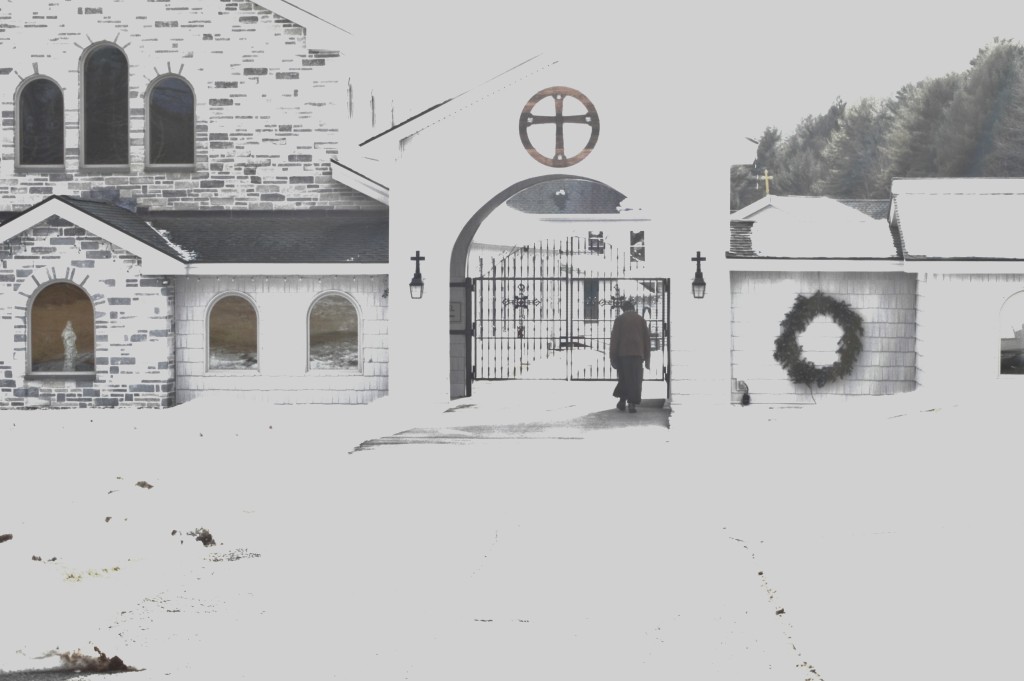“He (St John of the Cross) wills that we should extinguish our imagination—so lethargize it that it can no longer form images—imprison our senses, annihilate our faculties. He wills that he who desires to unite himself to God should place himself under an exhausted receiver, and make a vacuum within, so that, if he choose, the Pilgrim should descend therein, and purify himself, tearing out the remains of sins, extirpating the last relics of vice.
“Then the sufferings which the soul endures overpass the bounds of the possible, it lies lost in utter darkness, falls under discouragement and fatigue, believes itself for ever abandoned by Him to whom it cries, who now hides Himself and answers not again, happy still when in that agony, the pangs of the flesh are not added, and that abominable spirit which Isaias calls the spirit of confusion, and which is none other than the disease of scrupulousness pushed to its extreme.
“Saint John makes you shudder when he cries out that this night of the soul is bitter and terrible, and that the being who suffers it is plunged alive into hell. But when the old man is purged out, when he is scraped at every seam, raked over every face, light springs out, and God appears. Then the soul casts itself like a child into His arms, and the incomprehensible fusion takes place.
“You see Saint John penetrates more deeply than others into the depths of mystical initiation. He also, like Saint Teresa and Ruysbröck, treats of the spiritual marriage, of the influx of grace, and its gifts; but he first dared to describe minutely the dolorous phases which till then had been but hinted at with trembling.
“Then if he is an admirable theologian, he is also a rigorous and clear-sighted saint. He has not those weaknesses which are natural to a woman; he does not lose himself in digressions, nor return continually on his own steps; he walks straight forward, but you often see him at the end of the road, blood-stained and terrible, with dry eyes.”
“But, but,” said Durtal, “surely not all souls whom Christ will lead in the ways of mysticism are tried thus?”
“Yes, almost always, more or less.”
“I will confess that I thought the spiritual life was less arid and less complex. I imagined that by leading a pure life, praying one’s best, and communicating, one would attain without much trouble, not indeed to taste the infinite joys reserved for the saints, but at last to possess the Lord, and live, at least, near Him, at rest.
“And I should be quite content with this middle-class joy. The price paid in advance for the exaltation described by Saint John disconcerts me.”
The abbé smiled, but made no answer.
“But do you know that if it be so,” replied Durtal, “we are very far from the Catholicism that is taught us? It is so practical, so benign, so gentle, in comparison with Mysticism.”
“It is made for lukewarm souls—that is to say, for almost all the pious souls which are about us; it lives in a moderate atmosphere, without too great suffering or too much joy; it only can be assimilated by the masses, and the priests are right to present it thus, since otherwise the faithful would cease to understand it, or would take flight in alarm.”
“But if God judge that a moderate religion is amply sufficient—for the masses believe that he demands the most painful efforts on the part of those whom he deigns to initiate into the supremely adorable mysteries of His Person—it is necessary and just that he should mortify them before allowing them to taste the essential intoxication of union with Him.”
“In fact, the end of Mysticism is to render visible, sensible, almost palpable, the God who remains silent and hidden from all.” –J.K. Huysmans ‘En Route’


